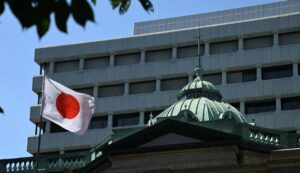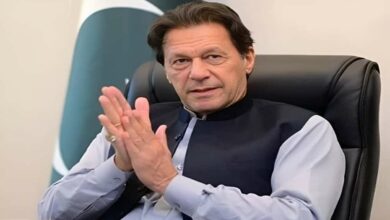Calls on Bank of Japan to raise interest rates at a “very moderate” pace
TOKYO: In addition to cautioning that more yen increases and a slowdown in global demand may have an impact on inflation and wage growth, Bank of Japan policymaker Seiji Adachi said on Wednesday, October 16, that the bank must raise interest rates at a “very moderate” pace and refrain from rising too soon.

According to Adachi, with the economy continuing to grow steadily and price increases becoming more widespread, Japan’s economy has already satisfied the requirements for normalizing ultra-loose monetary policy.
However, he cautioned that there were a number of economic risks that called for hiking interest rates cautiously.
As the US Federal Reserve moves into a full-fledged rate-cutting cycle, the yen may continue to rise from multi-decade lows, he added. This would drive down the cost of imports into Japan and raise consumer inflation.
Aside from weakening demand in China and the US, other major global concerns include the uncertainty around the result of the US presidential election and the possibility that Japanese businesses would continue boosting salaries in the next year.
“Next year’s wage developments in Japan are highly uncertain due to the high level of uncertainty surrounding global developments.” Adachi said in a speech that “we must closely monitor the situation” and that it would be necessary to take some time to thoroughly examine these dangers before hiking rates once again.
The comments made by former economist Adachi, who is regarded as having a neutral stance on monetary policy, come after Governor Kazuo Ueda’s assertion that the BOJ was not in a hurry to hike rates.
With the understanding that Japan was on course to consistently reach the bank’s 2% inflation objective, the BOJ halted negative interest rates in March and increased its short-term policy rate to 0.25 percent in July.
Although the majority of Reuters surveyed analysts predicted that the BOJ will rise rates once more by March of next year, a small majority believed that it would not this year.
In order to avoid having to increase rates abruptly by waiting too long, Adachi suggested that the BOJ raise rates gradually and in many stages before inflation consistently approaches 2%. However, he stressed that in order to avoid a return to deflation, the BOJ must move gently.
“Until underlying inflation sustainably and stably achieves our 2 per cent target, we must basically maintain an accommodative financial environment and raise our policy rate at a very moderate pace,” he said.
Eventually, the BOJ will increase its policy rate to what is known as the natural rate of interest—a level that neither cools nor overheats the economy.
Japan’s natural rate of interest is not officially estimated by the BOJ. However, it cites a number of scholarly estimates as a source that place the natural rate of interest in the range of -0.5% to +1%. The natural rate of interest, according to many observers, is around 1%.
“I think we can take the most cautious estimate because I think we should avoid increasing rates too soon. Adachi said, “Despite this, the actual policy rate we now have is sufficiently lower than the natural rate of interest. “This means an accommodative financial environment remains in place,” he said.





